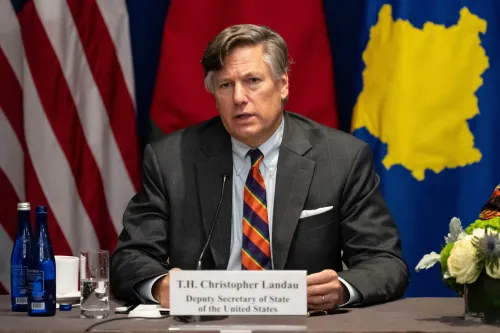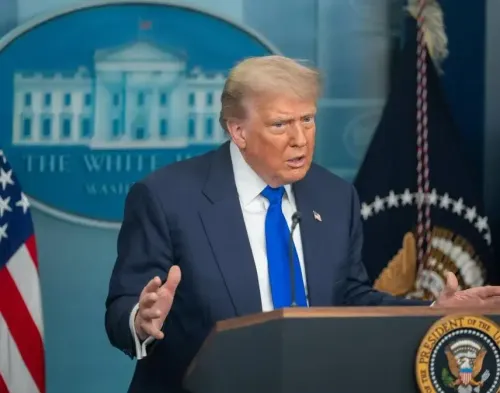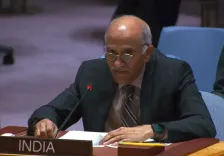Could Netanyahu's Approval Strengthen Ties with US President?

Synopsis
Key Takeaways
- Netanyahu endorsed a new peace initiative during his meeting with Trump.
- Qatar remains a key player in Gaza mediation efforts.
- Global leaders are responding positively to the proposed 20-point program.
- Concerns remain about Hamas and its role in the negotiations.
- The U.S. stance reflects a complex geopolitical landscape.
New Delhi, Sep 30 (NationPress) US President Donald Trump expressed optimism on Monday about possessing the blueprint necessary for achieving peace in Gaza, even prior to his meeting with Prime Minister Benjamin Netanyahu of Israel at the White House.
Netanyahu, who has met with the President on four occasions since Trump began his second term this year, readily endorsed the 20-point program.
The two leaders have consistently demonstrated a close relationship, as has been evident in prior interactions. Notably, during this visit, Netanyahu reached out to the Prime Minister of Qatar from the White House—a move believed to be suggested by the President—and offered an apology for a recent strike on Doha.
Reports indicated that the strike resulted in the deaths of several “low-ranking” members of Hamas and a Qatari national associated with security forces.
Qatar is a key ally of the U.S. and is involved in mediation efforts regarding the situation in Gaza.
Following their discussions, Trump remarked that the two leaders “really had a heart-to-heart conversation” and described it as “productive.”
Netanyahu clarified that “Israel is targeting terrorists” and not “targeting Qatar.”
Earlier this month, the United States condemned the strike in a resolution at the United Nations Security Council. Critics, however, argue that the U.S. has been less vocal regarding Israel’s military actions in Lebanon, Syria, Yemen, Iran, and Tunisia.
Some accuse Trump of being overly pleased with Qatar following a $400 million aircraft gift received during his recent visit.
While Trump expressed frustration with Israel for not adhering to his call for a ceasefire, he has refrained from being as critical of Israel as he has been towards Russian Premier Vladimir Putin regarding the ongoing conflict in Ukraine.
Meanwhile, several countries, including the United Kingdom, Australia, Canada, and France, have joined the growing list recognizing the state of Palestine.
Trump and Netanyahu have condemned these nations, arguing that recognizing Palestine without addressing Hamas undermines efforts to combat the organization.
World leaders have largely welcomed the proposed program, viewing it as a potential pathway to resolve the crisis in Gaza. Prime Minister Narendra Modi stated that the plan offers a viable route to long-term peace, security, and development for both the Palestinian and Israeli peoples, as well as the broader West Asian region.
Modi expressed hope that all parties would unite to support Trump’s initiative aimed at ending the conflict and achieving lasting peace.
British Prime Minister Keir Starmer remarked that the new U.S. initiative to cease hostilities in Gaza is greatly welcomed and expressed gratitude for Trump's leadership. He urged all sides to collaborate with the U.S. Administration to finalize this agreement and implement it, urging Hamas to accept the plan and alleviate the ongoing suffering by laying down their arms and releasing remaining hostages.
European Commission President Ursula von der Leyen took to social media to express support for President Trump's commitment to ending the war in Gaza, encouraging all parties to seize this opportunity, with the EU ready to offer assistance.
Numerous other leaders have echoed similar sentiments, expressing hope for a swift and lasting resolution. Hamas has indicated it will respond, potentially by Wednesday, following Trump's statement that the group has “three or four days” to react.









